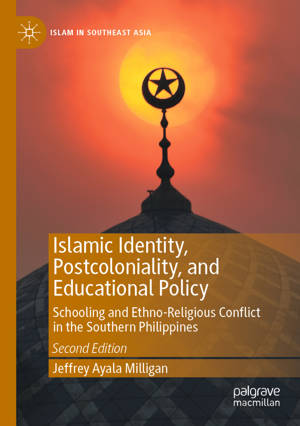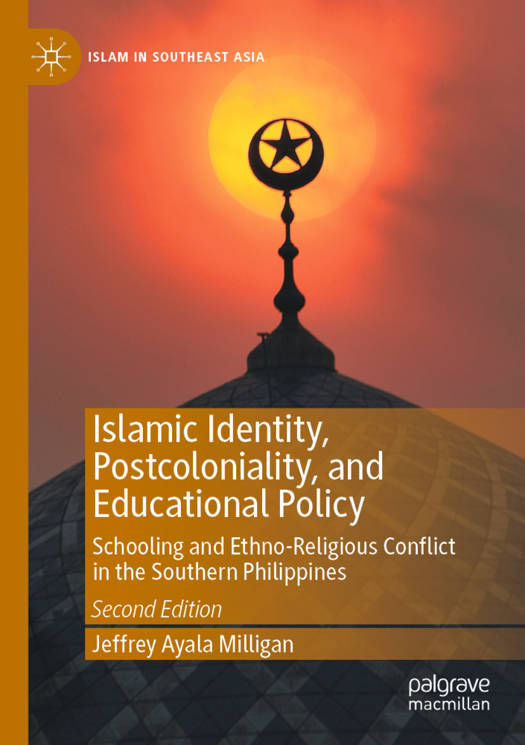
- Afhalen na 1 uur in een winkel met voorraad
- Gratis thuislevering in België vanaf € 30
- Ruim aanbod met 7 miljoen producten
- Afhalen na 1 uur in een winkel met voorraad
- Gratis thuislevering in België vanaf € 30
- Ruim aanbod met 7 miljoen producten
Zoeken
Islamic Identity, Postcoloniality, and Educational Policy
Schooling and Ethno-Religious Conflict in the Southern Philippines
Jeffrey Ayala Milligan
€ 62,45
+ 124 punten
Uitvoering
Omschrijving
This book theorizes a philosophical framework for educational policy and practice in the southern Philippines where decades of religious and political conflict between a minority Muslim community and the Philippine state has plagued the educational and economic development of the region. It offers a critical historical and ethnographic analysis of a century of failed attempts under successive U.S. colonial and independent Philippine governments to deploy education as a tool to mitigate the conflict and assimilate the Muslim minority into the mainstream of Philippine society and examines recent efforts to integrate state and Islamic education before proposing a philosophy of prophetic pragmatism as a more promising framework for educational policy and practice that respects the religious identity and fosters the educational development of Muslim Filipinos. It represents a timely contribution to the search for educational policies and practices more responsive to the needs and religious identities of Muslim communities emerging from conflict, not only in the southern Philippines, but in other international contexts as well.
Specificaties
Betrokkenen
- Auteur(s):
- Uitgeverij:
Inhoud
- Aantal bladzijden:
- 300
- Taal:
- Engels
- Reeks:
Eigenschappen
- Productcode (EAN):
- 9789811512308
- Verschijningsdatum:
- 27/02/2021
- Uitvoering:
- Paperback
- Formaat:
- Trade paperback (VS)
- Afmetingen:
- 148 mm x 210 mm
- Gewicht:
- 417 g

Alleen bij Standaard Boekhandel
+ 124 punten op je klantenkaart van Standaard Boekhandel
Beoordelingen
We publiceren alleen reviews die voldoen aan de voorwaarden voor reviews. Bekijk onze voorwaarden voor reviews.











